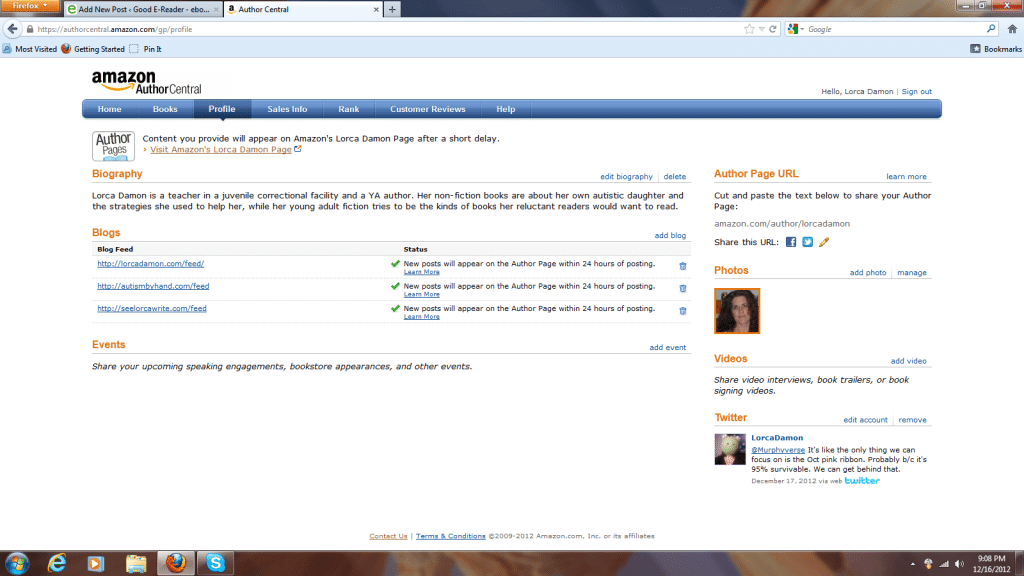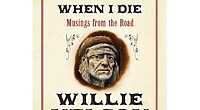
With more and more authors hitting the bookshelves and less money becoming available for publicity purposes, authors of every genre and publishing style need to use all of the tools at their disposal for book promotion. One of the most useful tools an author can provide to potential reading consumers is a dedicated author page, usually available as a free feature from the ebook distribution platforms that retail the books.
While the amount of information available on an author can vary between the platforms, Amazon, Barnes and Noble, Kobo, and Smashwords, for example, all have pages where authors can find all of their books listed in one easy to navigate plane. Some pages, like Amazon’s through its Author Central platform, can provide even more information on an author, such as recent blog posts, forum discussions, and video links from recent author events.
“When I first started blogging I didn’t have an audience other than my cousins and I still went for the expense of having a website professionally done,” said Erica Lucke Dean, author of the upcoming To Katie, With Love (Redadept Publishing). “It starts with the home page, and it can direct you to the blog. When I link, I connect to the individual blog. I also have my Facebook fan page, separate from my personal page, and my Twitter. I also have my page from my publisher.”
While having all of those sources of exposure are important to an author’s discoverability, finding ways to easily direct readers to one’s books is vital to increasing exposure and increasing book sales.
“You have to have an Amazon page, especially as an indie author,” explained bestselling author Tess Thompson, author of Riversong (Booktrope) and the upcoming release, Caramel and Magnolias. “A Facebook page and a Twitter presence are also important, but of those two Twitter is huge, especially if you’re trying to find readers and not just other writers. All these social media platforms are great for writers because it gives us the opportunity to talk about our work, which we wouldn’t have otherwise.”
There are some things that authors must keep in mind, though, especially when considering the implications of a global ebook retail market. For example, Amazon’s Author Central helps self-published authors create a centralized location for their titles, but this page has to be created for each international market, unlike the automatic distribution of their works.
“There are a couple of things that authors need to realize,” said Rachel Thompson, author of the upcoming essay collection Broken Pieces and bestselling author of A Walk in the Snark and Mancode:Exposed. “So many authors have no idea that they can do this. Their books can be available across the world, but if they don’t have an author page they’re missing out. Also, if they’re making their keywords for their books, they want to optimize their book by using those keywords in the author page. The search engines are only looking inside that retailer. It’s a matter of being consistent. The other thing that most people don’t realize is you have to fill out an Author Central page for every country where Amazon sells your book and fill out the same information that you filled out for the US. It’s all about branding and keywords.”
The establishment of these author sites can range from the simple task of plugging in a little bit of information, all the way up to having to hire professionals to create a polished website. All of those necessary steps will lead to exposure, ideally resulting in a greater career longevity and satisfaction with book sales.
Mercy Pilkington is a Senior Editor for Good e-Reader. She is also the CEO and founder of a hybrid publishing and consulting company.
